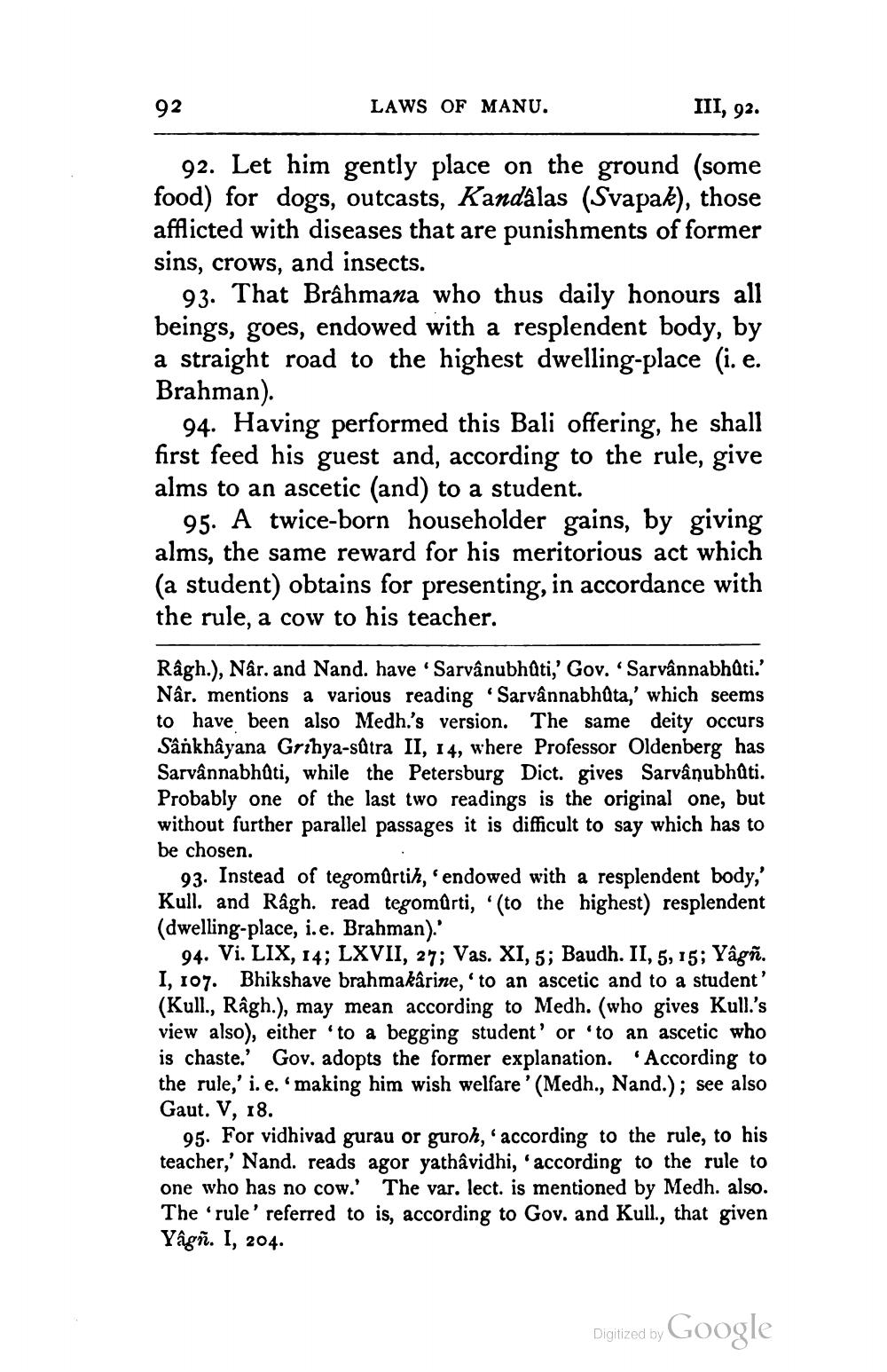________________
92
LAWS OF MANU.
III, 92.
92. Let him gently place on the ground (some food) for dogs, outcasts, Kandalas (Svapak), those afflicted with diseases that are punishments of former sins, crows, and insects.
93. That Brahmana who thus daily honours all beings, goes, endowed with a resplendent body, by a straight road to the highest dwelling-place (i. e. Brahman).
94. Having performed this Bali offering, he shall first feed his guest and, according to the rule, give alms to an ascetic (and) to a student.
95. A twice-born householder gains, by giving alms, the same reward for his meritorious act which (a student) obtains for presenting, in accordance with the rule, a cow to his teacher.
Râgh.), Nâr. and Nand. have 'Sarvânubhuti,' Gov. 'Sarvânnabhûti.' Nâr. mentions a various reading 'Sarvânnabhûta,' which seems to have been also Medh.'s version. The same deity occurs Sânkhâyana Grihya-sûtra II, 14, where Professor Oldenberg has Sarvânnabhûti, while the Petersburg Dict. gives Sarvânubhuti. Probably one of the last two readings is the original one, but without further parallel passages it is difficult to say which has to be chosen.
93. Instead of tegomûrtih, 'endowed with a resplendent body,' Kull. and Râgh. read tegomûrti, (to the highest) resplendent (dwelling-place, i.e. Brahman).'
94. Vi. LIX, 14; LXVII, 27; Vas. XI, 5; Baudh. II, 5, 15; Yâgñ. I, 107. Bhikshave brahmakârine, 'to an ascetic and to a student' (Kull., Râgh.), may mean according to Medh. (who gives Kull.'s view also), either 'to a begging student' or 'to an ascetic who is chaste.' Gov. adopts the former explanation. According to the rule,' i. e. 'making him wish welfare' (Medh., Nand.); see also Gaut. V, 18.
95. For vidhivad gurau or guroh, according to the rule, to his teacher,' Nand. reads agor yathâvidhi, 'according to the rule to one who has no cow.' The var. lect. is mentioned by Medh. also. The 'rule' referred to is, according to Gov. and Kull., that given Yâgn. I, 204.
Digitized by
Google




